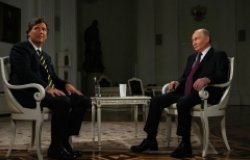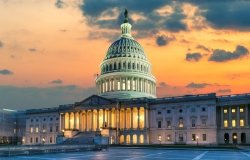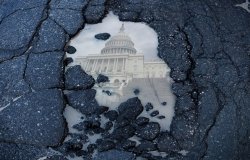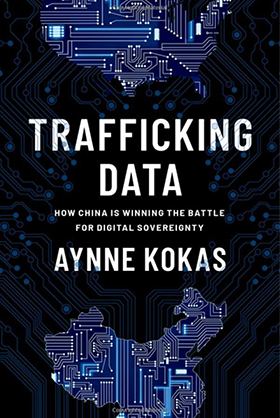The Military's Invaluable 'Soft' Power
"At a time when too many see U.S. foreign policy in kinetic terms, like drones or special ops, the 'soft power diplomacy' of disaster relief delivers life-saving help to desperate people, and improves their image of America," writes Jane Harman in The Huffington Post.
Just as in Pakistan after devastating floods and earthquakes, Thailand after the tsunami and the worst flood in a century, and Haiti after an earthquake leveled its major city, America's military is once again doing a masterful job of staging relief supplies into an area devastated by a catastrophic natural disaster.
In the Philippine islands where barely a tree is left standing and as many as 10,000 are feared dead, U.S. soldiers are on the ground.
As Americans, it is natural for us to display generosity and compassion in response to natural disasters. These are truly American values. In fact, our generosity and compassion -- combined with the U.S. military's unparalleled ability to deliver disaster relief -- may be our most effective foreign policy tools.
Our military's complete focus can't be overseeing rescue and recovery efforts after a typhoon. However, our extraordinary competence at staging disaster relief gives the U.S. the ability to show the world our better angels. It's a side that -- unfortunately -- many otherwise won't see.
Speaking on a panel on security resilience at the World Economic Forum in Bangkok last year, I pointed out that the United States has a proven record in providing aid after disasters, including the 2004 Indian Ocean earthquake and tsunami, the Thai floods, the 2005 earthquake in Pakistan, and the Fukushima, Japan, nuclear disaster.
We have the opportunity to again provide more than just "hard" assistance--relief designed to save lives. We also have the opportunity to show the world American generosity and compassion. Coming to the aid of the people of the Philippines is the right thing to do as human beings. It is also the right thing for the U.S. to do to improve relations with other countries.
Relief efforts have a real and measurable impact on how others view us. After the Fukushima nuclear disaster, Japanese Cabinet office polls registered record levels of public goodwill towards the U.S. Eighty-five percent of Japanese viewed the United States positively in Pew's annual Global Attitude Project survey in 2011 -- up from 66 percent the year before.
Indonesia may be the best example of what our humanitarian aid -- and our military's ability to stage relief efforts and deliver crucial supplies -- can mean for America's image. After the Iraq War began, only 15 percent of Indonesians had a favorable view of the U.S. A few months after relief efforts began in regions in Indonesia devastated by tsunami, 38 percent of Indonesians said they had a favorable view of the U.S. By 2011, 54 percent of Indonesians say they had a favorable view of the U.S.
To be sure, there are other factors that helped improve America's favorability in Indonesia. However, Indonesians saw with their own eyes our military delivering food, medicine, and supplies to their neighbors. This made a real impact in how they feel about Americans -- an especially important development considering that Indonesia is primarily a Muslim nation.
The devastating tsunami that hit Indonesia also pounded Thailand in 2004. In relief efforts, Americans and Thais worked side-by-side to deliver food and supplies. Americans lined up to donate blood. U.S. humanitarian assistance helped build trust with Thailand's government and the Thai people. Building this relationship played an important part in facilitating the capture of the terrorist Hambali by Thai authorities in Bangkok in 2005.
Building trust both with citizens and governments is an invaluable foreign policy tool. At a time when too many see U.S. foreign policy in kinetic terms, like drones or special ops, the "soft power diplomacy" of disaster relief delivers life-saving help to desperate people, and improves their image of America.
About the Author

Jane Harman
Jane Harman, Distinguished Fellow and President Emerita, Wilson Center, is an internationally recognized authority on U.S. and global security issues, foreign relations and lawmaking. A native of Los Angeles and a public-school graduate, she went on to become a nine-term member of Congress, serving decades on the major security committees in the House of Representatives. Drawing upon a career that has included service as President Carter’s Secretary of the Cabinet and hundreds of diplomatic missions to foreign countries, Harman holds posts on nearly a dozen governmental and non-governmental advisory boards and commissions.
Read More









